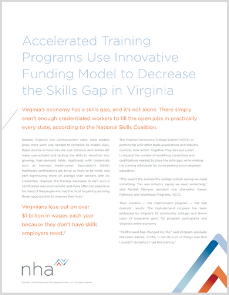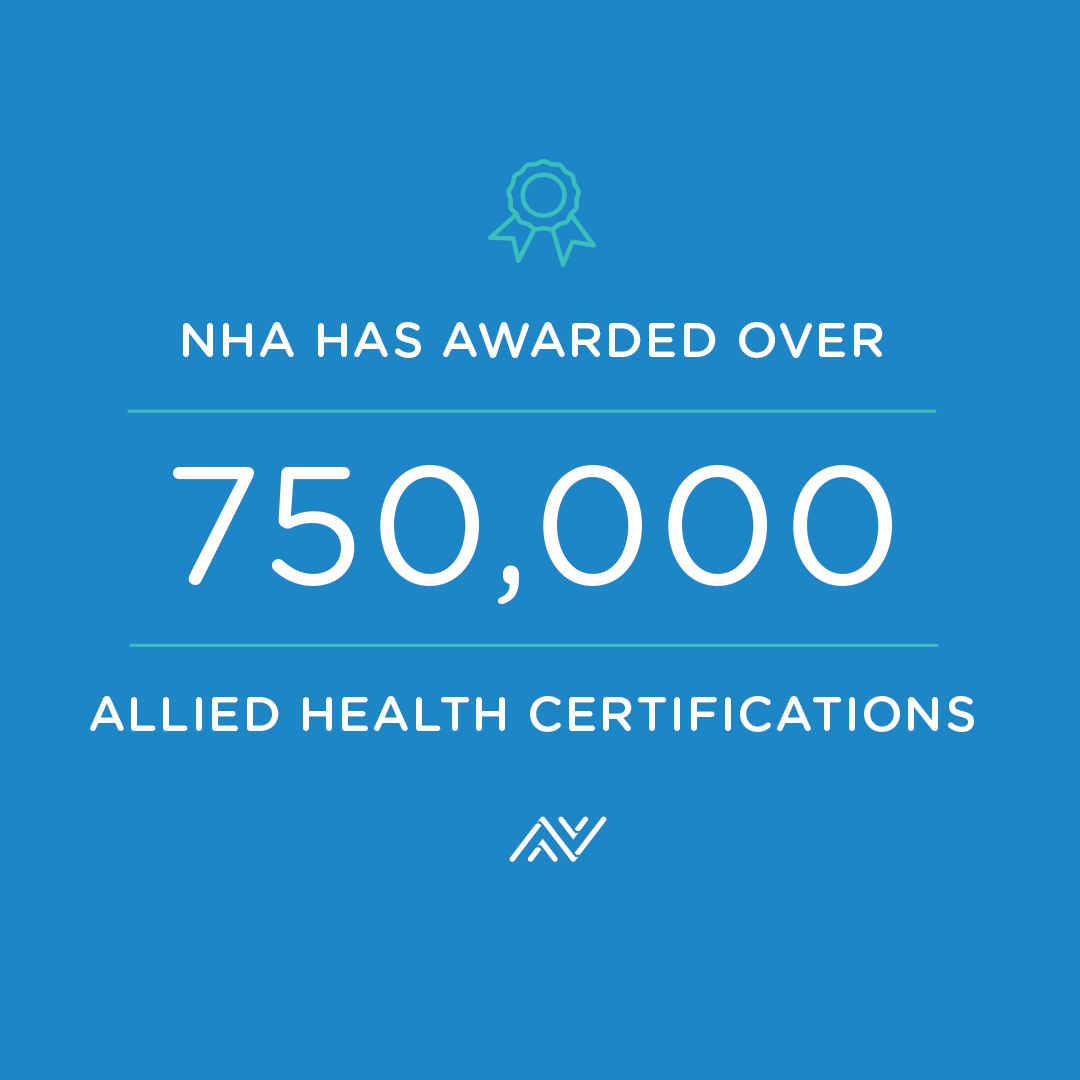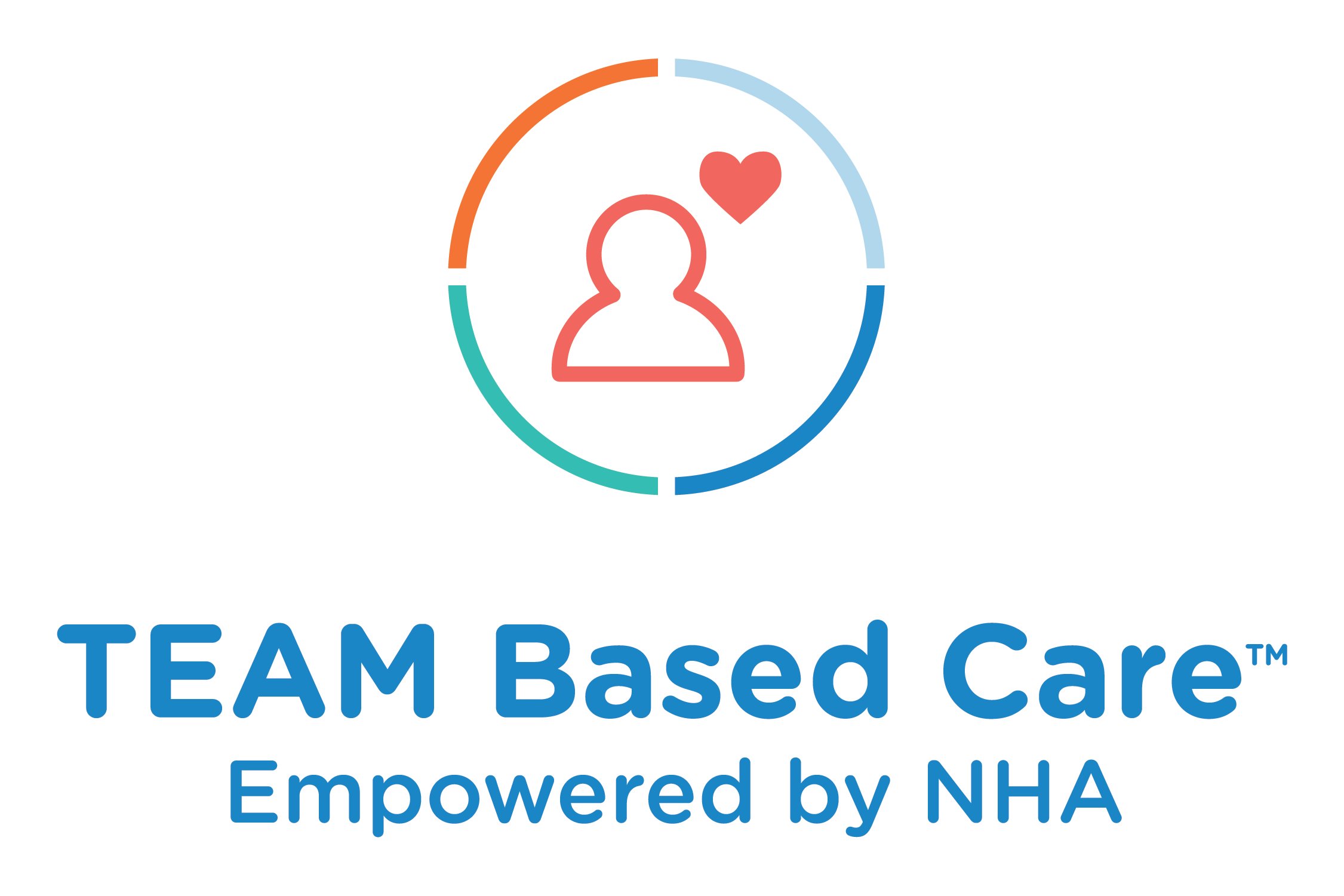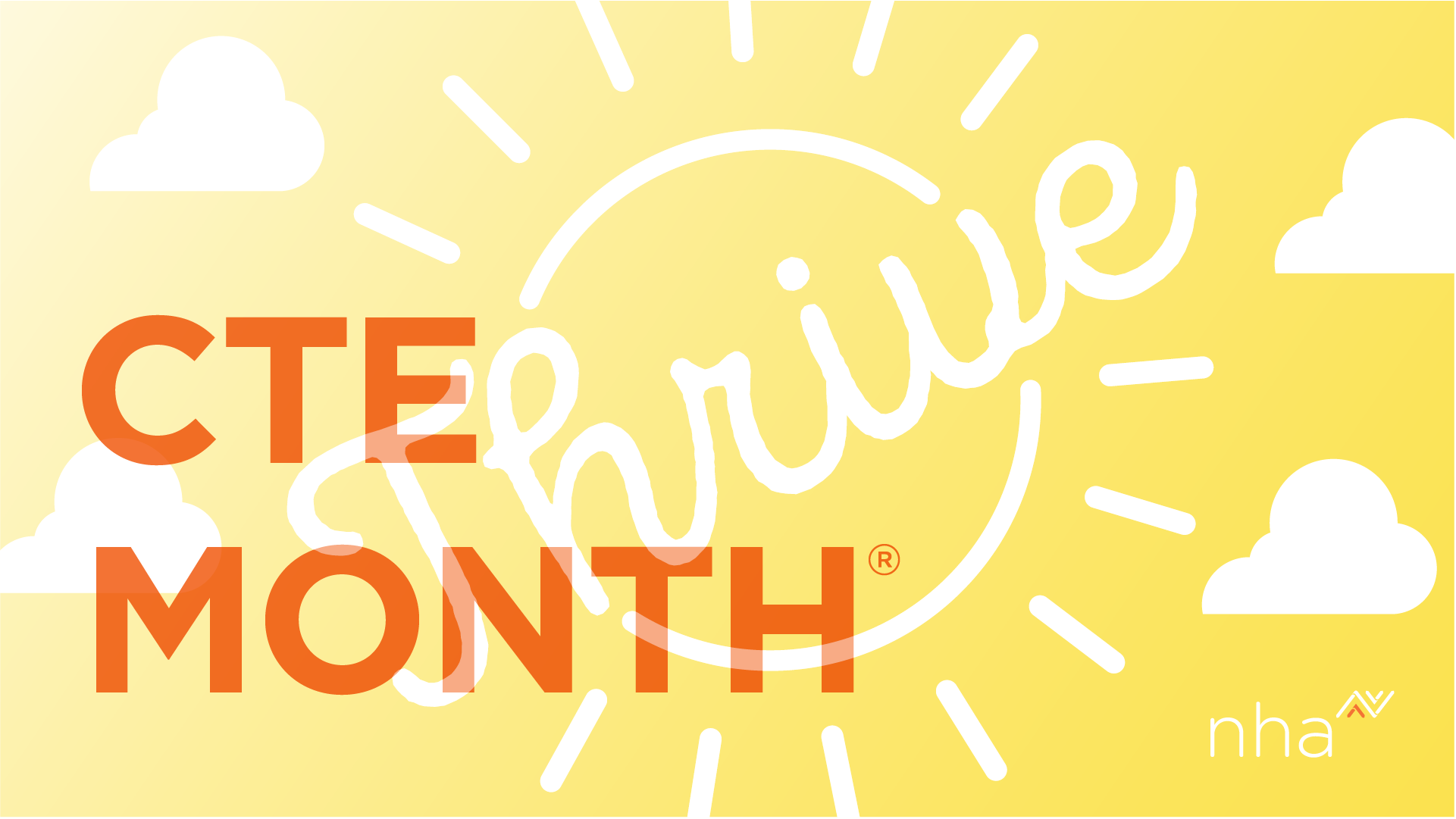Virginia’s economy has a skills gap, and it’s not alone. There simply aren’t enough credentialed workers to fill the open jobs in practically every state, according to the National Skills Coalition.
Accelerated Training Programs Use Innovative Funding Model to Decrease the Skills Gap in Virginia
National Healthcareer Association (NHA) reaches 750,000 certifications awarded to allied health professionals
Higher education was a hot topic during the month of March as stakeholders across the education sector engaged in rigorous advocacy and political outreach The data across this sector highlights sensitivity around educational preparedness and workplace rediness with only a third of students believing they will graduate with the skills and knowledge to be successful in the job market (34%) and in the workplace (36%).
In addition to discussions around education, there is continued excitement around advancing the roles of allied health professionals in fields like medical assisting and pharmacy tech. This month I had the opportunity to attend and speak on an industry panel discussing how pharmacy technicians are being seen as the back-bone of our pharmacies and the need for awareness around the topic.
NHA is in the process of launching our TEAM Based Care™ Assessment Based Certificate Program. This is an online learning and assessment tool for team-based and coordinated care teams that includes a psychometrically sound exam to prove competency. It was created to unite care teams, while empowering professionals within each role to work to the top of their credentials.
February is CTE Month®, a time to bring recognition and awareness to the impact Career and Technical Education has on the lives of so many hospitals, patients, teachers and students. NHA is happy to support the efforts of so many and to provide not just credentials but empower people to thrive. Check out additional ways that CTE is being recognized this month.
The middle skill economy was also discussed this month as both the Higher Education Act and Perkin’s Reauthorization is still being debated on Capital Hill. By identifying job market needs and providing programming aimed at helping to retool the skill sets required for middle-skill jobs, universities and colleges can help middle-skilled workers increase their earning potential while cashing in on a lucrative new revenue stream.
What does the future of healthcare look like as e-commerce giants such as Amazon look to disrupt the healthcare industry at an attempt to lower health cost at a time when they are forecasting that healthcare cost will represent 19.7% of the economy by 2026, up from 17.9% in 2016.
As the holiday season is in full swing, value based care remains a hot topic. Many organizations -especially entities like CVS -are working to connect its importance to public health, as healthier individuals make healthier communities. Regardless of the confusion in federal healthcare regulation, the underlying principles are simple: provide good care and do it at as low a cost as possible.
Many healthcare organizations are aiming to create patient-centered environments, focusing on the patient while simultaneously providing improved health care. Federal regulations are also pushing for a value-based system, and new practitioners are needing to be educated on the importance of quality measurements, care coordination and population heath management to see success in their practices.
June was a busy month for the healthcare education industry. Many key themes focused on challenging educational institutions and businesses to think more creatively about experientallearning and the concept of apprenticeships. It’s challenging to keep up with regulatory updates, announcements, mergers, best practices, so we’ve made it more simple for you.
Here is a collection of the top stories in allied health for the past month. Providing fast access to key industry updates and empowering individuals with this information is meaningful to the work we do here at NHA.
NHA recognized by The American Legion to help improve transparency in the credentialing marketplace
Today National Healthcareer Association (NHA) will be represented at the Military to Healthcare Credentialing Roundtable convened by The American Legion to address the employment challenges currently facing America’s service members and veterans in healthcare. This selective group will collaborate with other key stakeholders, such as representatives from each military branch and the Credential Engine, a non-profit organization whose mission is to improve transparency in the credentialing marketplace, to discuss the unique challenges veterans face when it comes to credential attainment.








